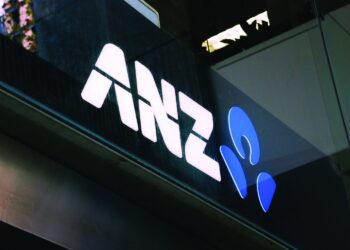Last week, Schroders Australia announced it will merge its Australian fixed income and multi-asset teams, following closely on the heels of First Sentier Investors’ announcement that it intends to close its Australian fixed income, alongside its global credit, equity income, and emerging companies teams.
While analysts believe fixed income is poised for a resurgence, recent challenges have left investment managers worried. Given the ongoing geopolitical tensions and persistent inflation, many believe it’s wise to steer clear of fixed income for a bit longer.
In this environment, the changes announced by Schroders and First Sentier Investors have been perceived by some as a loss of confidence in the asset class. However, David Little, senior analyst in manager research at Morningstar, assures that this is not the case.
Speaking with InvestorDaily, Little explained that these decision are more indicative of the individual companies trying to increase synergies and efficiencies in their businesses.
“I think Schroders is more about trying to increase synergies within the business, not necessarily fixed income per se,” he said.
“[At FSI] I suspect the issues are more internal … They probably felt some of the prospects for their own capabilities weren’t as strong. In the current climate everyone is looking for efficiencies and synergies, I think it’s more reflective of that.
“Managers go through certain points where they try to reenergise and improve synergies and efficiencies.”
Little explained that Morningstar’s outlook for fixed income is “much stronger that it has been” in the past.
“Yields are back at what they were, you can get sort of 4 per cent yields on both Australian and global fixed income. We’ve been through a period that’s been a low interest rate environments and it’s hard to generate a return on fixed income, but now there is a much stronger yield cushion,” he said.
Ultimately, Little said he does not believe the changes within Schroders and First Sentier Investors reflect a negative view of Australian fixed income.
“Within our Australian fixed income category, you can already see over the last 12 months there seem to have been some flows out of some of the shorter duration strategies that don’t have as much interest rate risk into the more traditional fixed income strategies,” Little said.
“I think that’s validation that, even though returns have been harder to come by, fixed income investors are seeing the attraction of the high yields.”
Last week, Schroders said it is remerging its fixed income and multi-asset divisions, led by Sebastian Mullins and deputy Kellie Wood, to “futureproof” the business and enhance resource synergy through cross-collaboration.
Speaking with InvestorDaily’s sister brand, Money Management, Mullins explained that the two divisions had operated this way several years ago. Now, the asset manager has decided to remerge them once more.
Mullins said: “We separated the teams previously and let them each find their own footings, but what we found there was competition for sales and for resources etc, so we have brought them back together so we can synergise across the teams.
“We are leaning into the cross-collaboration.”
First Sentier Investors, on the other hand, announced it was closing its Australian fixed income, global credit, equity income and emerging companies teams. These teams encompassed 10 funds combined, affecting $14 billion in assets under management.
Unconcerned by institutional internalisation and retail ETF shift
Dissecting the tougher environment for fund managers where institutional investors, such as superannuation funds, are internalising their management and retail investors are flocking to ETFs, Little said there isn’t cause for concern.
“There’s certainly been a push into the ETF space, but most of the sectors are still in net positive flow, so it’s not like there are outflows. It’s a little bit case by case, depending on the sector.
“There has certainly been a push into ETFs by retail investors and passive … But you can certainly see that high-quality managers are still attracting good flows.
“For the industry funds, the internalisation, reduced market share on the institutional side, that’s been a trend that has been occurring over time and it’s likely to continue.”
Little reiterated that the environment for fixed income managers will improve as central banks begin to cut rates.
Last month, Dan Ivascyn, chief investment officer at PIMCO, highlighted the growing appeal of certain segments within the bond market, citing promising valuations.
“When you look at where we are now in this tightening cycle, where the Fed has likely hit the peak in terms of policy and you look at lags from a monetary transmission perspective, this is a time where the historical data would suggest it makes a lot of sense to extend from cash into fixed income,” Ivascyn said.
His observation, he explained, stems from the usual trend during this phase of the cycle, which customarily sees a shift towards rate cuts.
Finally, he outlined a favourable outlook for fixed income, emphasising opportunities in Australian bonds and stating that current valuations support reallocating funds from cash to fixed income, as well as transitioning from equities to fixed income as a de-risking strategy.







